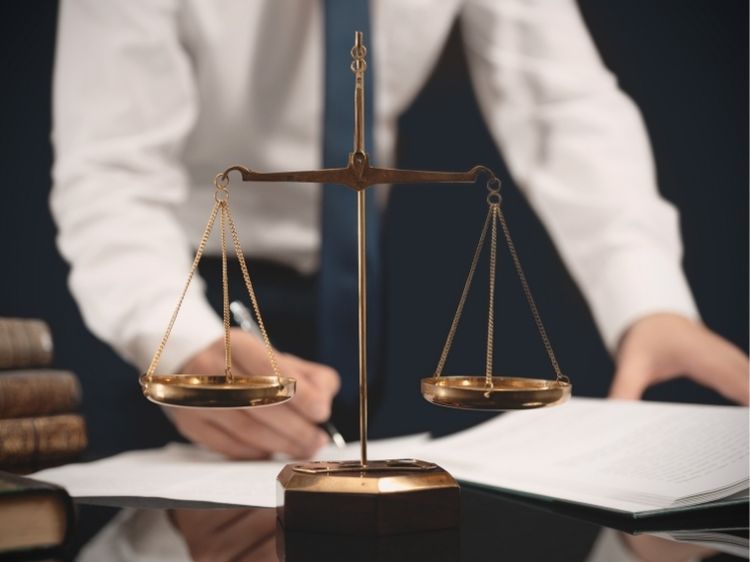Liability for Negligence: Understanding Legal Responsibility
Negligence is a term we often hear tossed around, especially in the context of legal cases and insurance claims. But what does it really Liability for Negligencemean to be liable for negligence? In a world where the smallest misstep can lead to a lawsuit, understanding the concept of liability for negligence is crucial, not just for legal professionals but for anyone who wants to safeguard their interests. This article delves into the intricacies of negligence liability, exploring its legal implications, how it is determined, and what you can do to protect yourself or your business.
What is Negligence?
Negligence, in its simplest form, refers to the failure to exercise reasonable care in a situation where harm could foreseeably occur. Imagine driving a car and ignoring a stop sign. If your actions lead to an accident, you could be deemed negligent because a reasonable person would have obeyed the sign. In the legal realm, negligence is not just about making a mistake; it’s about failing to act as a reasonable person would under similar circumstances.
The Four Elements of Negligence
To establish liability for negligence, four key elements must be proven in court:
- Duty of Care: The defendant must have owed a duty of care to the plaintiff. This means that there was a legal obligation to act in a way that would prevent harm.
- Breach of Duty: The defendant breached this duty by failing to act as a reasonable person would.
- Causation: The breach of duty must have directly caused the harm or injury to the plaintiff.
- Damages: The plaintiff must have suffered actual harm or injury as a result of the defendant’s actions.
If any of these elements are missing, the case for negligence falls apart. It’s a bit like baking a cake; leave out one key ingredient, and the whole thing flops!
Legal Implications of Negligence Liability
When you’re held liable for negligence, it means you’re responsible for the harm caused by your actions—or inactions. This liability can lead to serious consequences, including hefty fines, compensation payments, and even damage to your reputation. In some cases, particularly in professional settings, negligence can lead to the loss of licenses or the right to practice.
Types of Negligence
There are various forms of negligence, each with its own set of legal ramifications:
- Comparative Negligence: In some cases, both parties may be found negligent. Comparative negligence assigns a percentage of fault to each party, reducing the damages accordingly.
- Contributory Negligence: This is a stricter form where if the plaintiff is found to be even slightly negligent, they may be barred from recovering any damages.
- Gross Negligence: This occurs when the defendant’s actions are seen as reckless or willfully harmful, often leading to punitive damages in addition to compensatory ones.
Vicarious Liability
Sometimes, an individual or organization can be held liable for the negligent actions of others. This is known as vicarious liability. For example, employers can be held responsible for the negligent actions of their employees if those actions were carried out within the scope of employment. This form of liability is particularly significant in cases involving large corporations or institutions.
Protecting Yourself from Negligence Claims
Now that we’ve explored what liability for negligence entails, let’s talk about how you can protect yourself. Whether you’re an individual, a small business owner, or part of a larger organization, there are steps you can take to minimize the risk of being held liable for negligence.
1. Understand Your Duty of Care
The first step in protecting yourself is understanding where your duty of care lies. This means recognizing the areas where your actions—or inactions—could potentially harm others. For businesses, this might involve conducting regular risk assessments to identify potential hazards.
2. Document Everything
In the event of a negligence claim, having detailed documentation can be your best defense. Whether it’s keeping records of safety inspections, employee training, or customer interactions, thorough documentation can demonstrate that you took reasonable steps to prevent harm.
3. Maintain High Standards of Practice
Whether you’re a professional offering services or a business providing products, maintaining high standards of practice is key. This includes adhering to industry regulations, following best practices, and continually updating your knowledge and skills.
4. Insurance
Liability insurance can be a lifesaver in cases of negligence. Whether it’s general liability insurance for a business or professional liability insurance for individuals, having coverage can help mitigate the financial impact of a negligence claim.
FAQs
- What is the difference between negligence and gross negligence?
Gross negligence refers to a more severe form of negligence where the defendant’s actions are not just careless but reckless, showing a blatant disregard for the safety of others. In contrast, standard negligence involves a failure to exercise reasonable care without the element of recklessness.
- Can you be partially liable for negligence?
Yes, in cases of comparative negligence, both parties can be found partially liable. The court assigns a percentage of fault to each party, which affects the amount of damages that can be recovered.
- How can businesses reduce the risk of negligence claims?
Businesses can reduce the risk of negligence claims by conducting regular risk assessments, maintaining high standards of practice, keeping thorough documentation, and ensuring adequate liability insurance coverage.
- What is vicarious liability?
Vicarious liability is when an individual or organization is held liable for the negligent actions of another person, such as an employer being responsible for the actions of an employee performed during their job duties.
Conclusion
Liability for negligence is a serious legal issue that can have far-reaching consequences. Understanding the elements of negligence, the types of liability, and the steps you can take to protect yourself is essential in today’s litigious society. Whether you’re a business owner, a professional, or just someone looking to stay informed, knowing how to navigate the complexities of negligence liability is invaluable.

